Section 223.9(1) of the Municipal Act, 2001, authorizes, but does not require, municipalities to establish lobbyist registries. The one exception is the City of Toronto, which is required to have a registry. Changes to the Act that became effective January 1, 2007 gave municipalities the power to establish a registry and appoint a Lobbyist Registrar.
Lobbyist registries in Canada
Québec is the only jurisdiction that requires lobbyists to register lobbying activities carried out at the provincial and municipal levels through its Lobbying Transparency and Ethics Act. Without a provincial framework to refer to, Surrey, Winnipeg and Edmonton have established their own processes and procedures to handle lobbying.
At the provincial-territorial level, only the Northwest Territories and Nunavut do not have lobbying laws in place. Here is a province by province summary.
In Ontario, the Lobbyists Registration Act requires registration for certain lobbying activities to provincial government officials and their staff, government employees, and OPP members. You can search the Registry.
In Canada, the Lobbying Act requires paid lobbyists who communicate with federal government officials and their staff, federal employees and members of the RCMP and Canadian Forces regarding certain matters. You can search the Registry of Lobbyists, Lobbying Registrations and Lobbying Communications.
What is lobbying?
Lobbying is when an interested party who represents a business or financial interest communicates with a public office holder in an attempt to influence a decision on governmental matters outside of normal processes, such as the creation, development, amendment or termination of any motion, bylaw, policy or program.
Section 223.9(2) of the Municipal Act, 2001, requires municipalities to come up with their own definition of the term “lobby.”
The Canadian Bar Association compares some of the definitions that municipalities including Toronto, Brampton, Edmonton, Winnipeg and the Quebec have developed.
The Toronto Municipal Code defines lobbying as:
To communicate with a public office holder on any of the following subject matters:
- Development, introduction, passage, defeat, amendment or repeal of a by-law, bill or resolution on any matter, by Council, a local board (restricted definition), the Board of Health, or a committee, another body or individual under delegated authority.
- Without limiting Subsection A, the following:
- (1) Development, approval, amendment or termination of a policy, program, directive or guideline.
- (2) Procurement of goods, services or construction and awarding a contract.
- (3) Approving, approving with conditions, or denying an application for a service, grant, planning approval, permit or other licence or permission.
- (4) Awarding any financial contribution, grant or other financial benefit by or on behalf of the City, a local board (restricted definition) or the Board of Health.
- (5) Transferring from the City, a local board (restricted definition) or the Board of Health any interest in or asset of any business, enterprise or institution.
- (6) Determining the model and method of delivering a service.
- The matters noted in Subsections A and B with necessary modifications, if considered by a local board (restricted definition), the Board of Health or another body or individual under delegated authority.
- In relation to a consultant lobbyist referred to in Article II or an individual as referred to in § 140-28B, to arrange a meeting between a public office holder and any other person
The Office of the Commissioner of Lobbying in Canada defines it as:
communicating, with public office holders, for payment with regard to:
- the making, developing or amending of federal legislative proposals, bills or resolutions, regulations, policies or programs;
- the awarding of federal grants, contributions or other financial benefits; and
- the awarding of a federal government contract (for consultant lobbyists only).
What are some examples of lobbying?
- A vendor invites staff or Council members to a learning session where the vendor promotes their software solution over a solution currently being used at the City.
- A developer by-passes the regular development application process and seeks approval from the Director to expedite a development application.
- A local business owner meets with a Council member to request potential changes to a Licensing By-law.
- A developer meets with Council members and a Manager in Economic Development to discuss the benefits of building a casino.
- A local business meets with a Council member to request funding for a new film studio.
What is a lobbyist registry?
A lobbyist registry is an accessible public record of meetings or communications that interested parties have had with government officials and/or senior staff members about a subject that they have an incentive to influence.
Registries vary between municipalities, but generally include:
- Name and business address
- Type (Consultant, In-House, Unpaid)
- Who the person is lobbying on behalf of – employer/business/organization
- What issue the person is lobbying about – subject matter
- Who will be lobbied
- How long lobbying on this issue is intended to take place
Here is what they may look like:
Municipalities that have lobbyist registries
As of March 2023, 9 of the 444 municipalities in Ontariohave a lobbyist registry framework in place:
- Brampton (By-Law came into effect on January 1, 2016. They also have a Lobbyist Code of Conduct)
- Burlington
- Collingwood (Population of 24,811 in 2021)
- Hamilton
- Region of Niagara
- Ottawa
- Pickering (By-Law)
- Region of Peel
- Toronto
- Vaughan
Municipalities that have gift registries
- Brampton
- Brantford
- Pickering – A Member who receives a gift or benefit of value greater than $200.00, or receives from a single source during a 12-month period gifts and benefits of total value greater than $200.00, shall within 30 days of receipt, file a Disclosure Statement with the City Clerk. A Member shall not accept a Gift or Benefit of value greater than $500.00 and shall not accept from a single source during a 12-month period Gifts and Benefits of total value greater than $500.00.
Municipalities that do not have lobbyist registries
City of Brantford, City of London, City of Mississauga, Town of Milton, Town of Caledon and City of Greater Sudbury have all investigated establishing a lobbyist registry and chose not to pursue it.
There were a number of common reasons for not establishing a lobbyist registry, including:
- A lack of significant issues related to lobbyists in the past
- The numerous safeguards already in place related to the conduct of public officers and to ensuring open and transparent government including internal policies and by-laws
- Uncertainty surrounding the potential costs and other resource requirements
- Unclear impact on staff
- A lack of Council support for the establishment of a registry
Guelph
Guelph does not have a lobbyist registry. The city reviewed the opportunity in 2019, and found that at this time, it is not recommended that a lobbyist registry be established as the City of Guelph has existing accountability and transparency measures and tools in place which includes an integrity commissioner who provides education and advice to members of Council.
Markham
Markham voted to defer any decision regarding the implementation of a lobbyist registry until after the 2022 municipal election.
Belleville
Belleville does not have a lobbyist registry. A motion raised in 2017 to ask staff to investigate forming a lobbyist registry to track what groups or businesses are approaching council, was defeated 5-4. Coun. Jackie Denyes noted that of more than 444 municipalities in Ontario, only four had registries.
How much does a lobbyist registry cost?
According to a 2019 report by the City of Guelph, the initial costs may range from $50,000 to $100,000, while the annual operating cost, depending on municipal size, number of complaints and inquiries, would be $55,000 to $130,000 based on research of Ontario municipalities with active registries.
According to a 2023 report to the City of Pickering, J-SAS Inc. charged the City $5,000 + HST per year to implement an online registry system. The cost to provide advice to public office holders and lobbyists and any necessary investigations will the responsibility of the Integrity Commissioner and billed at $275 per hour.
The Town of Collingwood uses their website to operate the registry and agreed to a 3 year deal with Principles Integrity in 2021 to which they paid $1,062.50 in 2021 and $2,110.54 in 2022 for Lobbyist Registrar services.
These costs may be too large a burden on the finances and resources of the more than half of the province’s municipalities that employ few full-time staff.
Who is a lobbyist?
A lobbyist is an individual who represents a business or financial interest who with the goal of
The definition of lobbyist used by the municipality determines the scope of who is considered a lobbyist:
- Former office holders
- Consultants
- Employees of private businesses
- May be exempt: Elected officials of other levels of government, other municipalities, foreign governments as well as the staff of publicly-funded educational and healthcare institutions
They are typically categorized as follows:
- Consultant: lobbies on behalf of a client for payment
- In-house: lobbies on behalf of their employer, own business or partner entity
- Voluntary/unpaid: lobbies without payment on behalf of an entity for the benefit of the individual or entity
and Public Office Holder being lobbied:
- Member of Council
- Member of a Local Board or Committee
- Officer or employee of the municipality
- Accountability officer such as the Ombusman or Integrity Commissioner
- Individuals who are providing professional services to the municipalities, while they are providing services
Here is how the City of Pickering defines a lobbyist:
Why are lobbyist registries important?
A judicial inquiry of on transactions in Collingwood found that between 2010 and 2014, Paul Bonwick, the brother of then-mayor Sandra Cooper earned more than $1 million for his involvement in deals made by Collingwood city council – almost half of what the town of about 22,000 paid in salaries in 2012 for its full-time staff.
According to Andrew Sancton, a political scientist at Western University, the existence of a lobbyist registry may not have prevented this particular incident, but it’s not so much about finding out what councillors are up to, but finding out who is actually trying to affect municipal policies.
In 2019, the town investigated the implementation of a Lobbyist Registry and established it in 2020. The Lobbyist Registrar publishes annual reports:
In 2022, 49 acts of lobbying were recorded by 40 lobbyists including 33 in-house, 12 consultant and 4 voluntary/unpaid.
As per their website:
Lobbying is a legitimate activity that benefits not only lobbyists, but public office holders and members of the public as well. The benefits of lobbying conversations are lost, however, when they take place exclusively behind closed doors. As such, the Lobbyist Registry was adopted to enhance accountability and transparency in local government by providing public access to the elements of the business conducted at the Town.
What to do if your municipality does not have a lobbyist registry?
- Contact your Members of Council and ask them to support a lobbying registry.
- Ask Members of Council to commit to not accepting donations from individuals related to development interests.
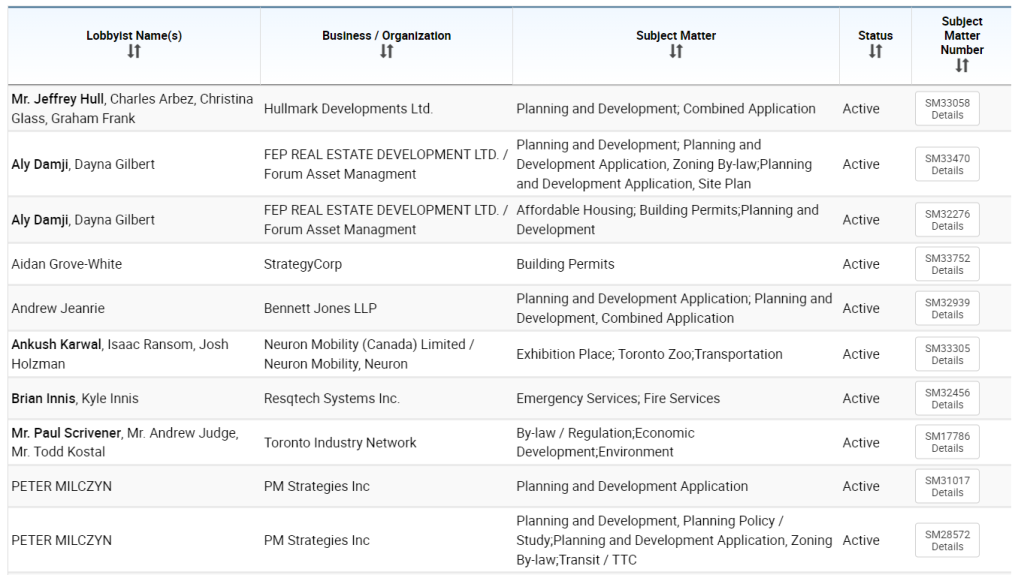
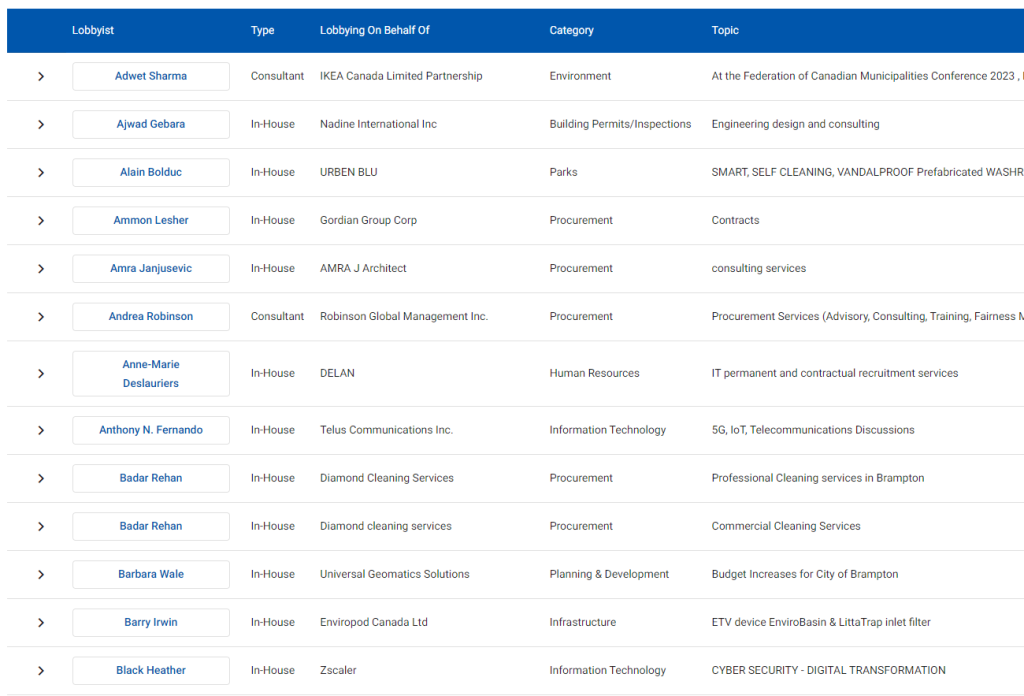
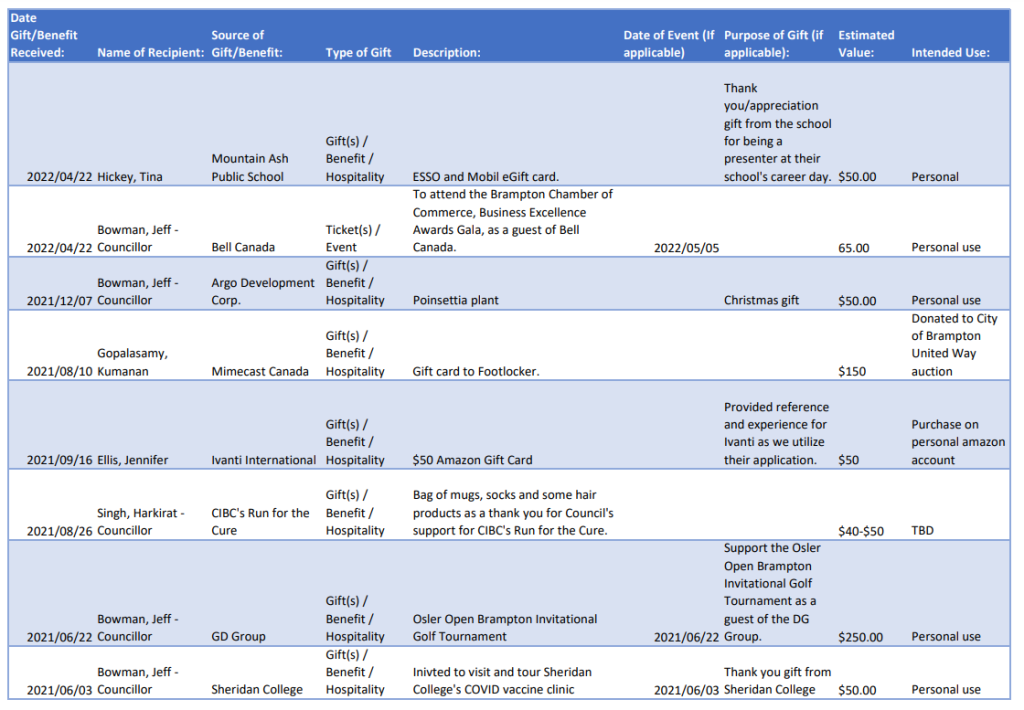
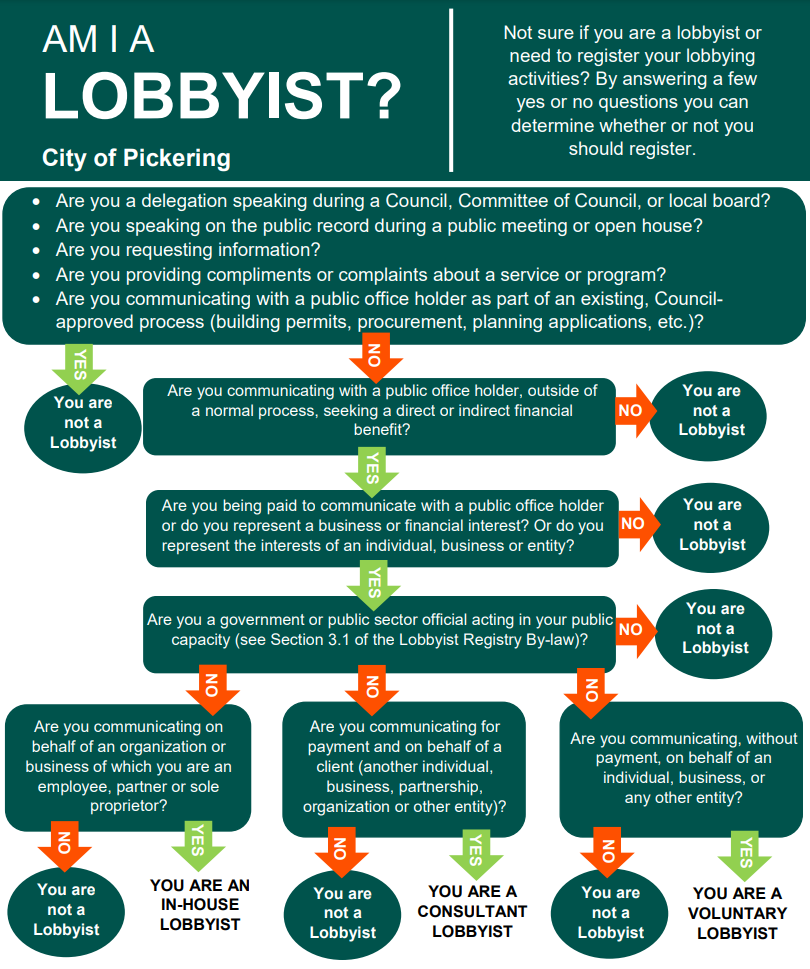
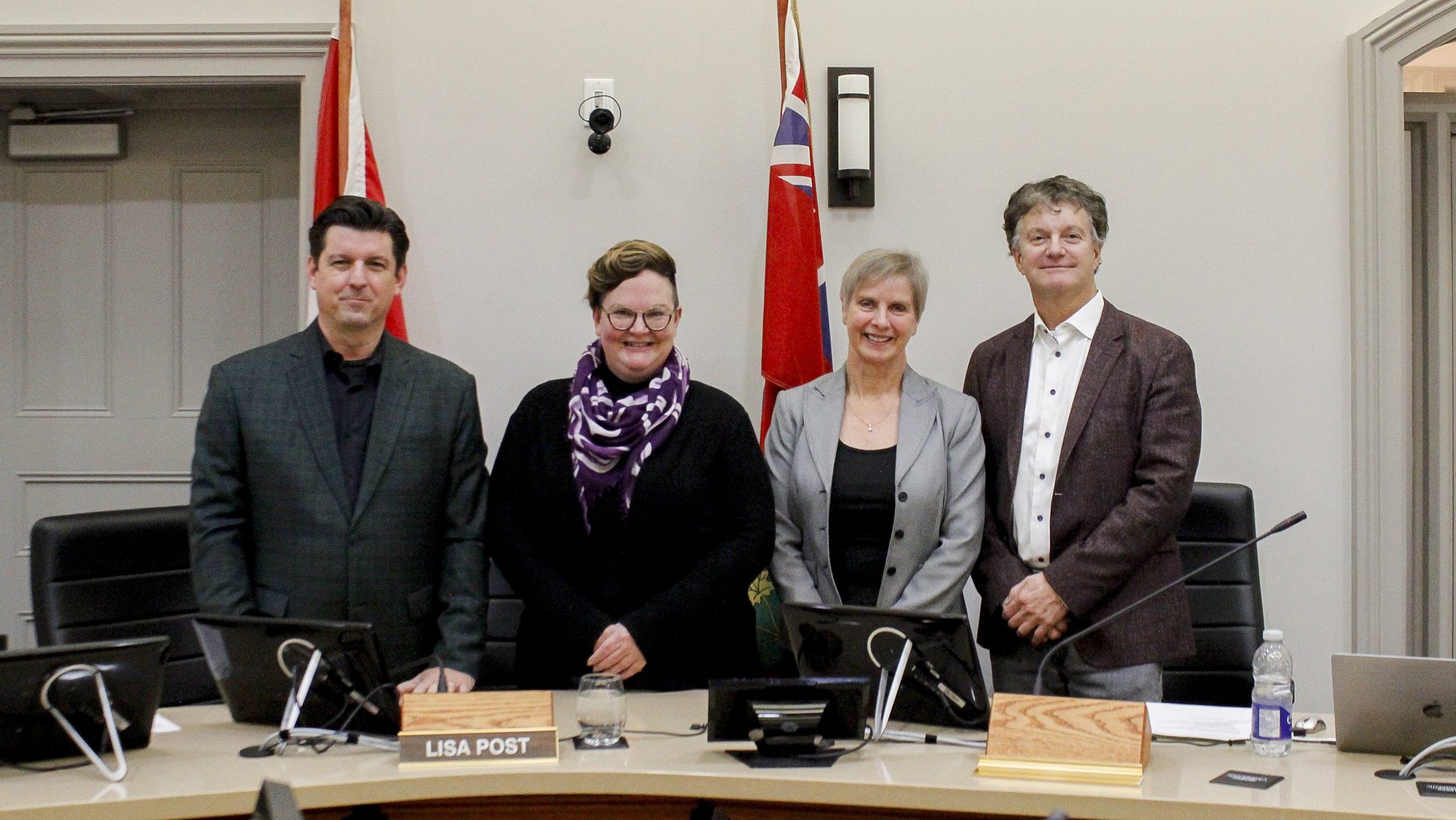
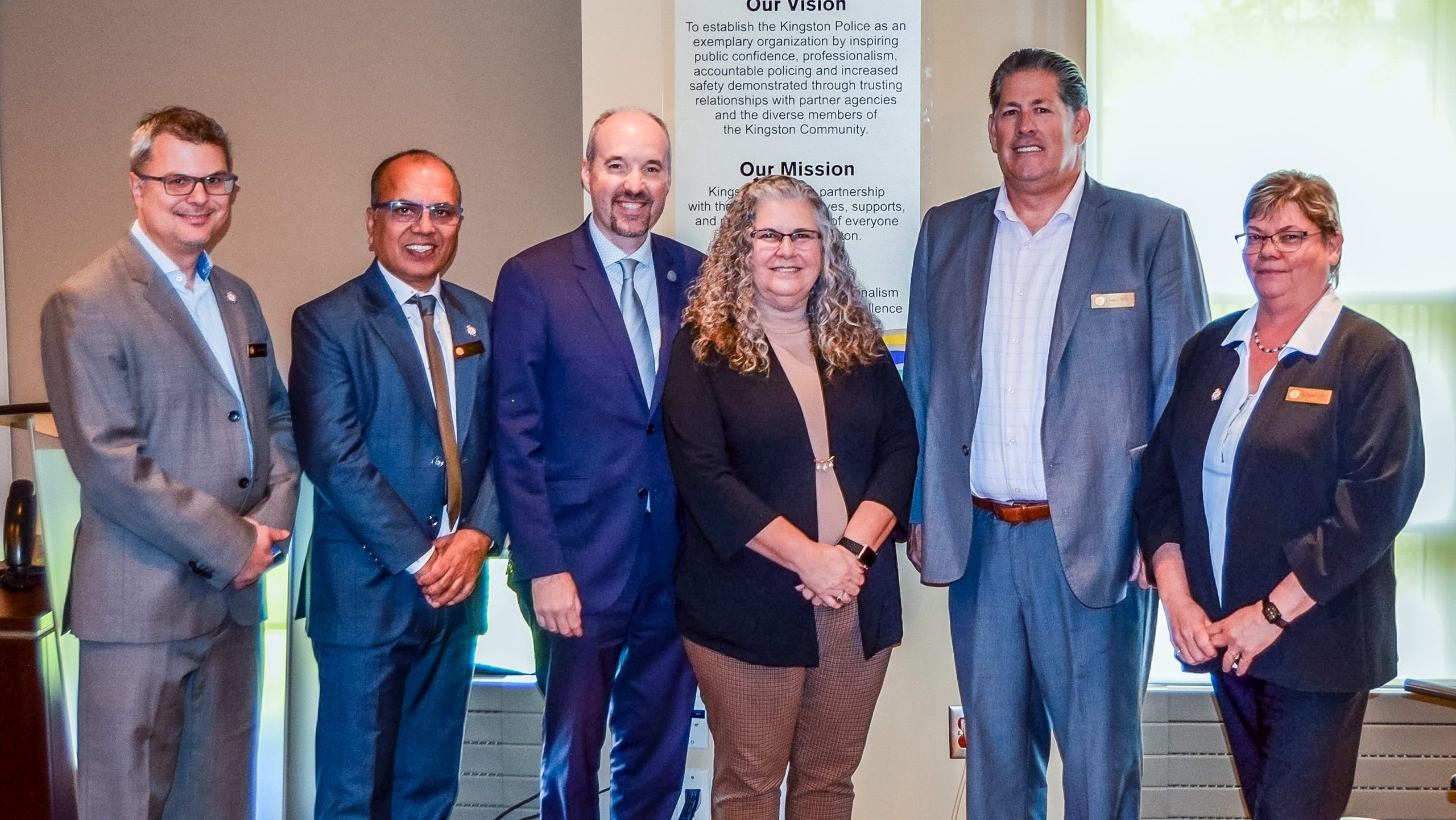
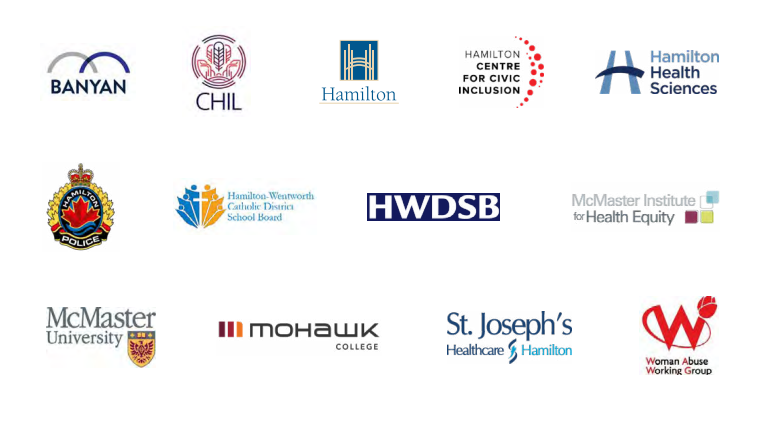
Comments
We want to hear from you! Share your opinions below and remember to keep it respectful. Please read our Community Guidelines before participating.